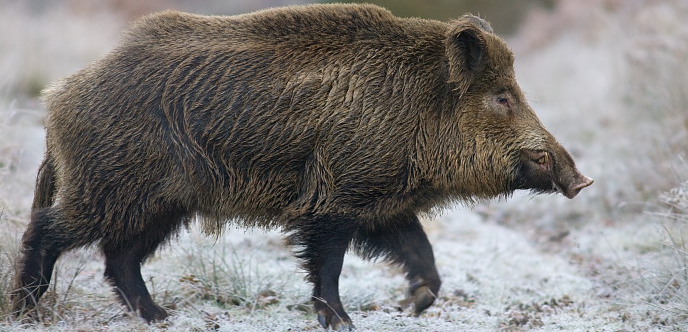The Pirbright research institute has announced new funding for research into new ways to protect pigs from African swine fever, including a vaccine for wild boar.
Scientists from The Pirbright Institute are spearheading a consortium of 31 members, which has been awarded €5.6 million by the European Union Horizon 2020 programme to study two viral diseases that are becoming growing threats in Europe; African swine fever (ASF) and lumpy skin disease (LSD) in cattle.
The project, under the DEFEND banner, aims to control the growing ASF and LSD epidemics in Europe by understanding what drives outbreaks of these diseases, by generating research that allows the development of new diagnostic tools and vaccines, and by working closely with decision-makers to make appropriate and rapid responses. The consortium partners include academia, government and industry, and come from 21 countries across Europe as well as Russia, Canada, Israel, Azerbaijan, South Africa and Australia.
ASF, a highly contagious disease of pigs which causes up to 100% mortality, has been moving through Eastern Europe since 2007 and, currently present in countries like Hungary, Poland and the Czech Republic, is seen as a major concern for the major pig producing countries in western Europe. The UK risk level was raised to ‘low’ last summer and that risk shows no sign of diminishing.
It has been spread by wild boar, with the absence of a vaccine making it very hard to control.
LSD causes a poxvirus disease in cattle and is transmitted rapidly in warm, humid conditions, most likely due to insect-borne transmission. It entered Europe, the Balkans and Caucasus for the first time in 2015 causing the deaths of thousands of cattle through mortality and mandated eradication campaigns.
DEFEND is split into 15 inter-related work packages. Pirbright contributors include Dr Pip Beard, who will work on LSD vaccine designed for use in Europe and neighbouring countries, Dr Chris Netherton will be developing an ASF vaccine for wild boar and backyard pigs, Dr Paolo Ribeca will analyse the genetic sequences of LSD and ASF to develop DNA based diagnostic tools, Dr Nick Lyons will provide expertise on vaccine use, and Dr Bryan Charleston will characterise the cattle immune response against LSD. The Pirbright reference laboratories will be providing diagnostic input.
The consortium is led by Dr Pip Beard, head of the Large DNA Viruses group at Pirbright. She said: “DEFEND will give us the opportunity to coordinate one of the largest groups of ASF and LSD disease experts and will help us to focus research in a way that will have real impact on the ground. By partnering these 31 varied and specialised organisations we hope to streamline the journey from scientific discoveries to policy implementation that will ultimately help to control these devastating diseases.”




